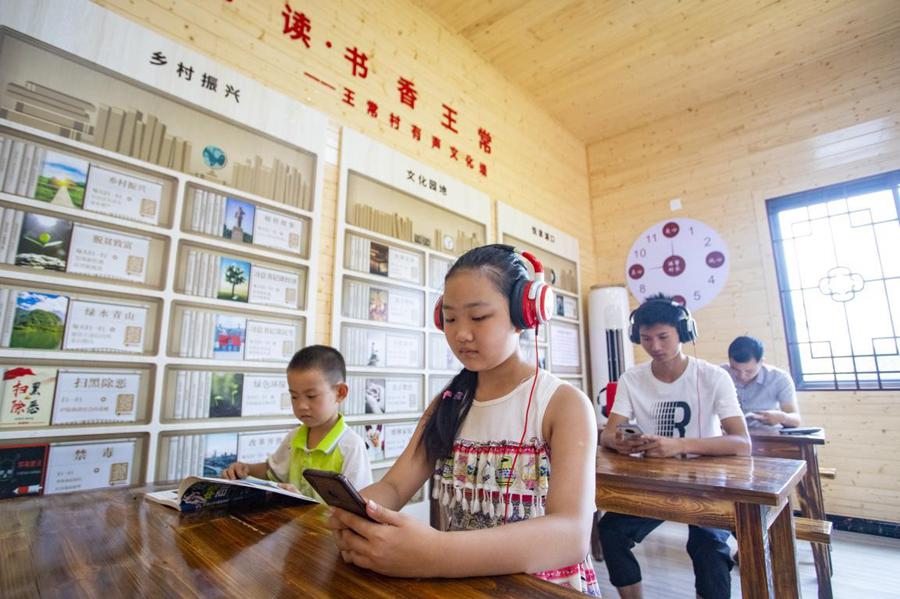'Ear economy' booms in China
China's online audio sector, or the "ear economy", represented by online audiobooks, audio live-streaming, and pay-for-knowledge products has witnessed rapid development in recent years.
The country's market size of long-form audio content is expected to reach 54.31 billion yuan (about $8.27 billion) by 2022, and the number of online audio service users in China will exceed 900 million in 2023, according to data from iResearch, an independent market research company.
For many people, listening to audio programs has increasingly become a part of their daily routine.
"I often listen to news programs during my commute to get information about the latest events, and spend lunch breaks during workdays taking audio courses in business and finance to improve myself. When I do laundry or cook at weekends, I always play an audiobook to relax myself," said a woman surnamed Wang, a white-collar worker of an Internet company in Beijing.
Audio materials allow listeners to rest their hands and eyes while using the fragments of time for self-improvement or recreation, compared with videos, said Wang, a big fan of online audio content who has arranged various audio programs for different time periods of the day and different occasions.
According to a national reading report released by the Chinese Academy of Press and Publication (CAPP) in April 2020, audiobooks have attracted more and more readers and become a new growth point for the Chinese people in terms of their reading behaviors.
The report showed that 31.2 percent of Chinese citizens and 30.3 percent of Chinese adults often listened to audiobooks in 2019. Audiobook mobile apps were the most popular choice among Chinese adults who listened to audiobooks, with the adults who listened to audiobooks via such apps accounting for 16.2 percent of the total, followed by WeChat programs and radio channels, indicated the report.
Audiobooks represent the most popular category among users on audio content platforms, while radio dramas and content about quality lifestyle favored by young users, parent-child courses designed for mothers. Audio courses and materials on workplace skills, foreign language learning, as well as knowledge about business, finance, and economics are also among the top on the bestseller list.
The ways in which people listen to audio content are more and more diverse. Wang told the People's Daily that she usually uses wireless earbuds connected to apps on her mobile phone to enjoy audio content during the commute, and plays such content via a smart speaker at home.
A jogger in Shenzhen, south China's Guangdong province, who is surnamed Zhou, said that he listens to various podcasts via his smartwatch while running. Podcasts are good company during exercise and sometimes inspire him to think, according to Zhou.
Audio content platforms have made active efforts to develop external channels for distribution of products, reaching out to potential partners including operators of smart hardware, apps, mini-programs, and mobile websites, said an analysis report released by Analysys International, a Beijing-based marketing consulting company.
Popular online audio-sharing platform Ximalaya FM in China has carried out in-depth cooperation with tech giants like Alibaba, Xiaomi, Huawei, Baidu, and Samsung to make audio content available on various smart terminals and in many scenarios in people's daily life. The platform has also launched relevant products including artificial intelligence-based speaker and earbuds.
Experts believe that with the advance in science and technology, the integration of audio content into smart hardware terminals like vehicle-mounted terminals, smart home devices, smart speakers, and smart wearables will bring audio products to various scenarios in life and further boost the development of the "ear economy."
 |
Photos
Copyright © 2021 People's Daily Online. All Rights Reserved.











